We are Shaping the Future! Showcasing Success Stories as We Innovate for a Sustainable Tomorrow
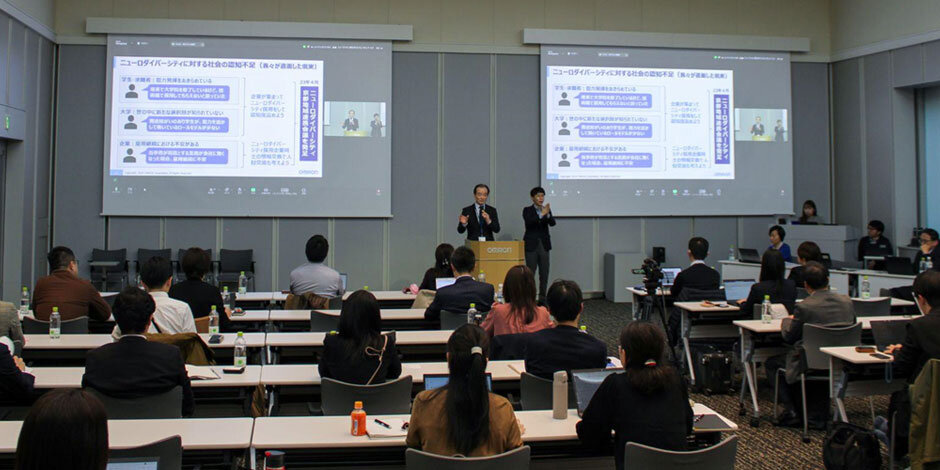
This web page is designed to be easily accessible for all users. Accessibility is provided by offering assistive features including screen reader compatibility, contrast enhancement, and a virtual keyboard.
Around 60 representatives of Valuable 500 companies in Japan participated in a hybrid seminar
On November 21, 2024, OMRON Corporation held a seminar at its Kyoto headquarters for Japanese companies participating in the Valuable 500 initiative. Valuable 500 is a global organization of over 500 partners and companies working together to end disability exclusion. Launched at the World Economic Forum Annual Meeting (Davos summit) held in January 2019, its purpose is to support business leaders representing 500 companies worldwide in implementing change to unlock the latent social, business, and economic value of people with disabilities. The Davos summit in 2019 was the first that had included a session focused on disability.
The theme of this seminar was to hire human resources with neurodiversity (developmental or neurodevelopmental disabilities). The seminar focused on the types of initiatives currently under way in a situation where employment of people with mental or developmental disabilities lags behind that of people with physical or intellectual disabilities. Including both in-person and online participants, around 60 individuals took part in the seminar; a report on the proceedings is provided below.
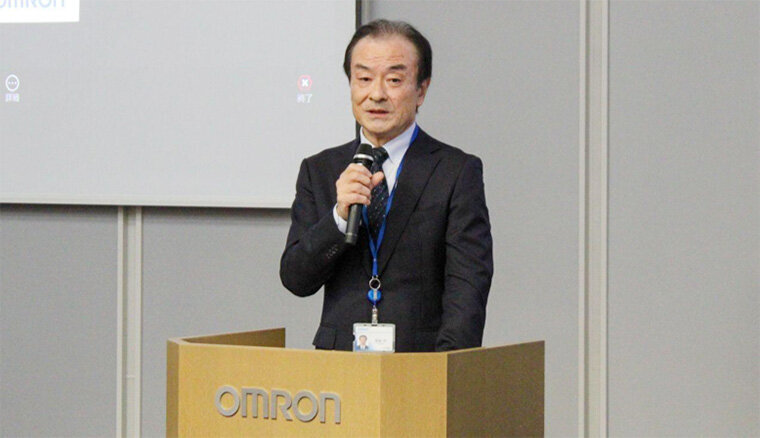 Isao Miyaji, Global Human Resources and Administration HQ, OMRON Corporation
Isao Miyaji, Global Human Resources and Administration HQ, OMRON Corporation
In the first part of the seminar, Isao Miyaji of OMRON Corporation's Global Human Resources and Administration HQ described initiatives undertaken by OMRON, as detailed below.
"Respect for All" is one of the key values included in the OMRON Principles. It has played a pioneering role in the employment of people with disabilities in Japan, most notably through the establishment of OMRON Taiyo Co., Japan's first factory focused on offering employment opportunities to people with disabilities in 1972. The entire OMRON Group actively employs people with disabilities, who currently account for 3.5% of all employees (Japan's legally mandated rate for employment of people with disabilities was 2.5% in 2024). As one element of the material sustainability issues defined under its long-term vision, the OMRON Group aims to achieve employment of people with disabilities at 28 overseas sites and maintain the ratio of employees with disabilities at 3% in Japan. To ensure that reasonable accommodation can be made in recruitment examinations and after employment, OMRON separates the recruitment processes for people with and without disabilities. However, both processes offer career-track roles (rather than more limited administrative roles) and the criteria for assessing candidates and terms of employment are the same for both.
Within this context, it became apparent that it was difficult to recruit neurodiverse human resources through OMRON's existing process for recruiting people with disabilities. When people were recruited via the usual online test and interview, they were required to demonstrate abilities typical of the majority of the population.
So, even an applicant with outstanding technical skills as an engineer, for example, would not be employed if they had traits of autism spectrum disorder that caused them to struggle with interviews.
Consequently, OMRON's management decided that it needed to rethink its usual recruitment process and set up a new neurodiversity-specific recruitment process in addition to its existing process for recruiting people with disabilities.
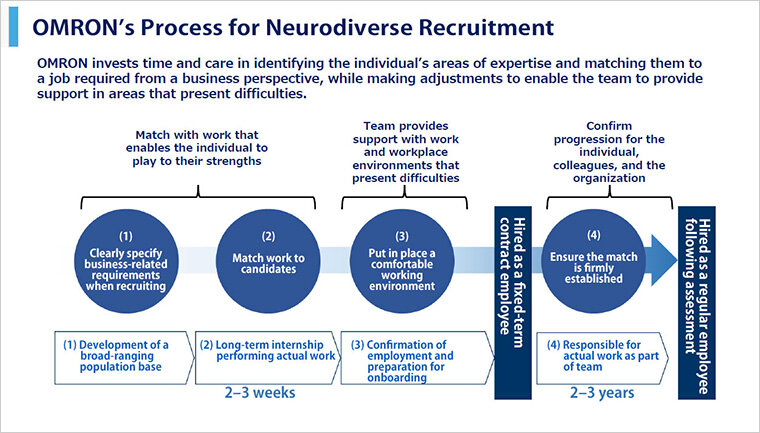
First of all, OMRON clearly specifies the candidate requirements for each business when recruiting. Successful matching between the candidate's strengths and the recruiting requirements is confirmed over time by means of a long-term internship. In conjunction with this, reasonable accommodation is made to enable the individual to play an active role and the work is adjusted to enable the team to provide support in areas that present difficulties. After these adjustments are in place, OMRON hires the candidate as an employee. By adopting this system, OMRON has ensured recruitment that benefits both neurodiverse human resources and the company itself. Employees with developmental disabilities are now playing active roles within their areas of expertise, positively impacting the productivity and management of the entire organization.
OMRON has also started a separate initiative to further improve participation in the workforce by neurodiverse human resources. The company launched a regional cooperation council for neurodiversity in its home city of Kyoto, through which 12 local companies are now cooperating on activities to spread knowledge regarding neurodiverse recruitment. This regional cooperation council has provided an opportunity for many companies to put in place working environments that will enable neurodiverse human resources to play active roles, and to move ahead with recruiting such individuals. The company hopes that, as a result, more people will realize that jobseekers with developmental disabilities now have new options for leveraging their own areas of expertise to participate in the workforce, and that many of them will find new opportunities.
ŃĆĆ
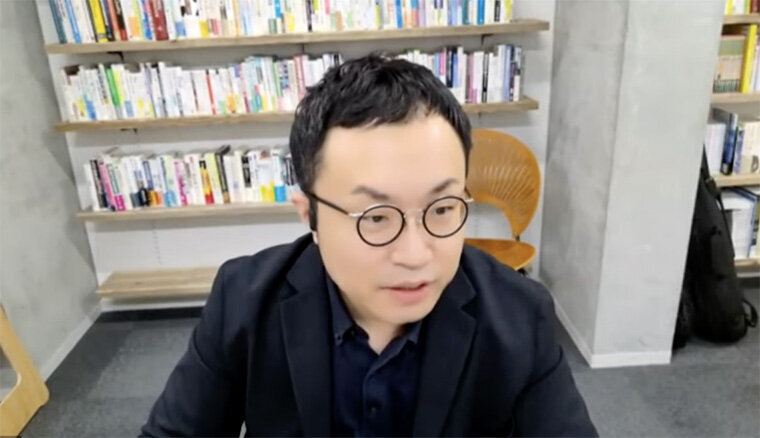 Professor Takeo Kondo, The University of Tokyo
Professor Takeo Kondo, The University of Tokyo
Professor Takeo Kondo conducts research in the social inclusion systems field at the University of Tokyo Research Center for Advanced Science and Technology and serves as an advisor to the regional cooperation council for neurodiversity in Kyoto. He delivered a presentation to the seminar remotely. Professor Kondo is hosting in DO-IT Japan, a program whereby industry and academia collaborate to help students who face difficulties due to disabilities and illnesses achieve their individual aspirations, thereby cultivating human resources who can play leading roles in the society of the future. Some of the suggestions he offered were from this perspective.
Until recently, there was little support for such students, making it difficult for them to feel hopeful about the future. In many cases, the traits of developmental disabilities were only discovered after they had become seriously maladjusted. However, a process of trial and error will be employed from early childhood to identify the right environment and reasonable accommodation for each individual child. This will empower each child to adopt a positive view of their own traits and who they are, enabling them to explore different approaches to achieving personal fulfillment. It is also necessary for companies to establish ways of working that fit with these individual traits.
Currently, if highly skilled students with developmental disabilities opt for career-track recruitment when job-hunting, conventional hiring practices (employing aptitude tests and interviews) present a hurdle, making it difficult for their strengths to be appreciated. Conversely, recruitment of people with disabilities may allow for evaluation of individual capabilities, but is often unable to offer roles, positions, and pay scales that make the most of special expertise. As one means of bridging this gap, specialist-focused employment models based on respect for neurodiversity and specialized skills are now becoming more widespread in Japan. Given that this initiative is still in its early stages of development, efforts to support companies embarking on neurodiverse recruitment for the first time are expected, including sharing of case studies and methods through regional collaboration.
ŃĆĆ
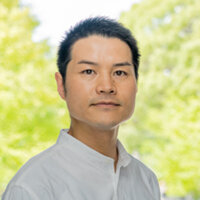 Associate Professor Jun Murata,
Associate Professor Jun Murata,
Kyoto University
Associate Professor Jun Murata, Chief Coordinator of the General Student Support Center at Kyoto University, is an advisor to the regional cooperation council for neurodiversity in Kyoto. He provided his remarks for the seminar in writing. Associate Professor Murata conducts various initiatives on the frontlines of student support, including providing advice, coordinating support, and offering a range of consulting services in relation to students with disabilities. Some of the suggestions he offered were from this perspective.
"Currently, the effects of Japan's Act for Eliminating Discrimination against Persons with Disabilities and other similar legislation have started to permeate as far as primary and secondary education, and as a result, a more diverse range of students than ever before are gaining access to higher education. (In Japan this trend is taking place around 20 to 30 years later than in the US and Europe.) The number of students with all kinds of disabilities has risen rapidly, but they are unable to plan effective paths toward participation in the wider society by relying solely on the existing provision for employment of people with disabilities. As a consequence, not only are their rights as individuals inadequately protected, but also society is losing out. I have high hopes that neurodiverse recruitment will prove to be a key practical initiative for solving these issues."
ŃĆĆ
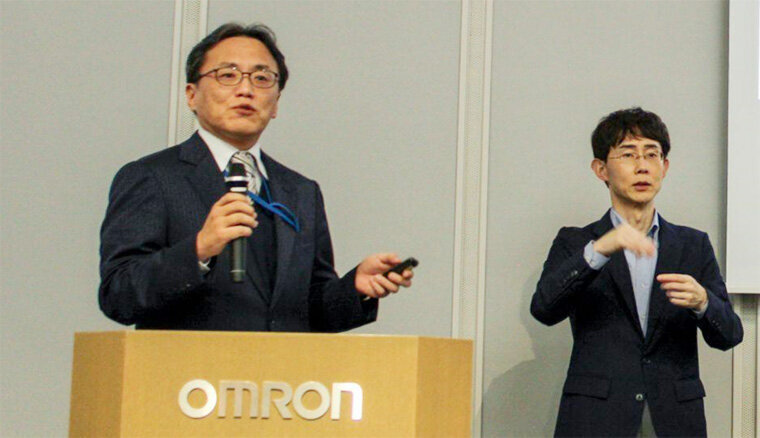 Shinya Fujimoto, Technology Development Division HQ, Industrial Automation Business Company, OMRON Corporation
Shinya Fujimoto, Technology Development Division HQ, Industrial Automation Business Company, OMRON Corporation
Shinya Fujimoto of the Technology Development Division HQ in OMRON's Industrial Automation Business Company took the stage, speaking on the topic "Management and Work Culture Transformed by Recruiting an Employee with Unusual Talent." Fujimoto is the manager of a department in which an employee with neurodiversity works, and his presentation is reported in his own words below.
OMRON's mainstay Industrial Automation business needed highly skilled engineers to take on the development of cutting-edge technologies, particularly AI engineers and image recognition engineers. Seeking human resources with a high degree of expertise, we decided to use neurodiverse recruitment to hire somebody with what we call "unusual talent."
That was when I first met Mr. A. He is on the autism spectrum and, as I remember, he communicated minimally during his interview other than to state his name. However, his academic results and research achievements during his student years were exceptional. In addition, he showed me a list of software he had developed and it matched the type of skills that OMRON needed. So, we offered him an internship, during which he did indeed demonstrate outstanding technical skills. We adjusted the work process in the division he was assigned to and took steps to ensure that his managers and colleagues understood the situation, and eventually we hired Mr. A as a regular employee.
Before working with Mr. A, I had assumed that it might be better for him to work mainly from home, or that he might prefer communication via online chatting rather than verbal communication, or that we might need to write down detailed specifications when asking him to do a task. As it turned out, however, he is happy to come into the office every day and receive work requests verbally. It is of course necessary to make reasonable accommodation, but the important thing is to communicate effectively to find better ways of doing things so that Mr. A can use his outstanding technical skills to play an active role. Human resources with unusual talent may be representative of diversity, but they are not exceptional. From that point of view, I think that employing Mr. A afforded us an opportunity to reexamine how we manage people. And I also feel that it has changed our organizational culture; for example, team members have taken the lead in adding new initiatives prioritizing the needs of people with disabilities, most notably during emergency evacuation drills.
ŃĆĆ
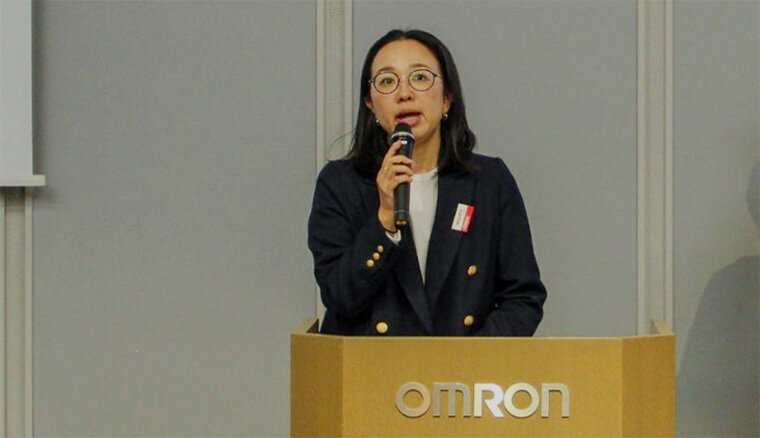 Hiroko Adachi, Kaien Co., Ltd.
Hiroko Adachi, Kaien Co., Ltd.
Next, the podium was taken by Hiroko Adachi, Senior Consultant for Corporate Services of Kaien Co., Ltd., which has helped OMRON with its recent neurodiversity-related initiatives. Kaien commands Japan's largest talent pool and support network of human resources with developmental disabilities. It conducts assessments backed up by a wealth of experience in both supporting companies and providing social services.
Ms. Adachi explained that, when hiring neurodiverse human resources, the most important thing of all is to create a job that is needed. OMRON started with its management putting out a strong message to the whole group regarding the promotion of diversity and inclusion. Specifically, the aim was to propose three job types for each division and nine job types for the entire organization. Then, as the preliminary stage in its recruitment process, OMRON significantly increased the number of jobs and internships it was offering. When creating jobs, it is important not to simply come up with a job for a person with a disability, but to allow the individual to play to their strengths while performing a job that the team regards as genuinely necessary.
Then, at the stage of actually matching neurodiverse human resources to jobs, it is important to not only rely on the documents they provide, but to actually meet them and listen to what they have to say in order to hear each individual's story. Listening to the individual's story often significantly changes the perspective of colleagues in the workplace.
I feel that OMRON has been consistent in its approach to employment of people with disabilities, viewing such employment as a catalyst for organizational innovation and a means of elevating its management capabilities. Right from the start, the OMRON Principles included Respect for All, and I feel that people in the Company are strongly motivated to act for the benefit of others, rather than thinking only of themselves or their own team.
ŃĆĆ
At the end of the seminar, a panel discussion took place, in which the three speakers participated, along with Emi Aizawa, Valuable 500 Regional Manager for Japan and Asia Pacific. They responded to questions posed by participants in the venue and online.
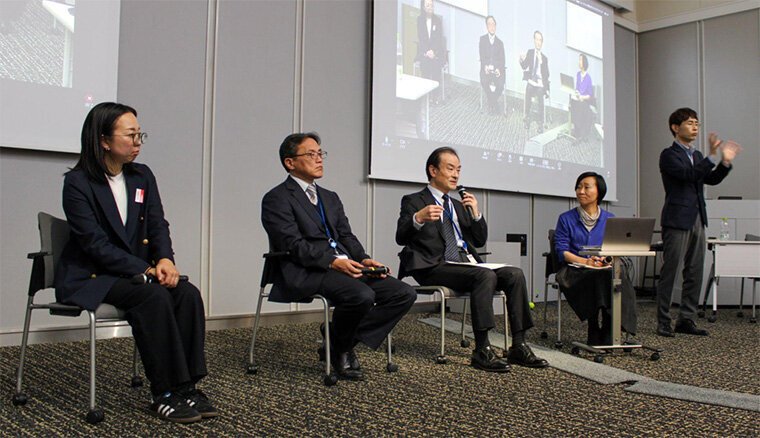
A participant in the venue asked, "When a mistake is made, it is difficult to tell whether it is a mistake due to the individual's developmental traits, or a mistake that should be rectified. Even if an individual's areas of weakness cannot be improved to an average level, I do think there are some areas in which the individual needs to make an effort. What are your views on this?"
Isao Miyaji responded by saying, "Rather than talking about this in the context of employing people with disabilities, I would like to talk about it in the context of transforming management. Neurodiversity does not refer only to people who have been diagnosed with developmental disabilities. I believe that everybody has their own individual traits and these traits lie along a spectrum in terms of how pronounced they are. So, regardless of any disability, if a mistake is made, it is up to the management to work out whether it can best be rectified by effort on the part of the individual alone, or by improving the way the team works. Thus, I want us to use our initiatives to support neurodiverse employees as a catalyst to change our management as a whole.
OMRON will continue pursuing its efforts to support neurodiverse human resources.
ŃĆĆ